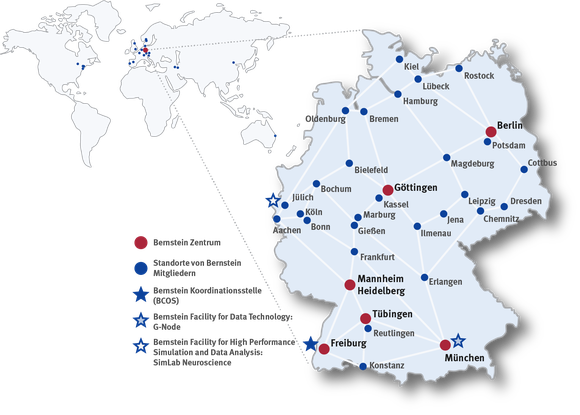National Bernstein Network Computational Neuroscience

The Bernstein Center Tübingen is part of the "National Bernstein Network Computational Neuroscience" (NNCN), an initiative of the Federal Ministry of Education and Research (BMBF) to promote the research discipline Computational Neuroscience. The network was established in Germany in 2004 and is named after Julius Bernstein (1835-1917), a German physiologist and biophysicist. His "membrane theory" (1902) provided a first biophysical explanation for how nerve cells transmit and process information by electrical currents. The backbone of the network is formed by six Bernstein Centers in Tübingen, Berlin, Munich, Göttingen, Freiburg and Heidelberg-Mannheim as well as two Bernstein Technology Foci in Frankfurt and Göttingen.

The network organizes common activities to foster computational neuroscience in Germany:
- Yearly Bernstein Conference for Computational Neuroscience
- DFG Priority Program "Computational Connectomics"
- DFG Priority Program "Evolutionary Optimization of Neural Systems"
- VW Foundation Program "SMARTSTART in Computational Neuroscience"
Our researchers actively take part in these network activities and thus shape the German-wide community.